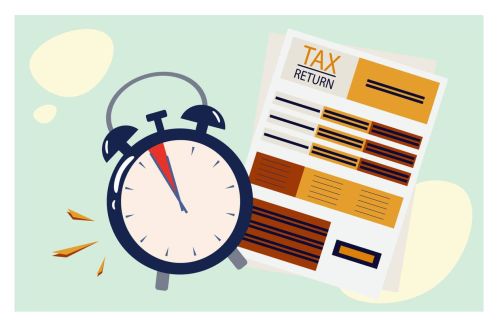Tax season can be a stressful time, particularly if you find yourself unable to pay your tax bill in full by the deadline. Fortunately, there are solutions to help alleviate this burden. Tax authorities in many countries provide programs and payment options for individuals facing financial difficulties. One such option is requesting a Time to Pay (TTP) arrangement, allowing taxpayers to settle their dues over an extended period.
This article explores what a Time to Pay arrangement entails, how to request one, and the steps you should take if you cannot pay your tax bill on time. Let’s delve into the details to empower you with the knowledge to manage your tax obligations effectively.
What is a Time to Pay Arrangement?
A Time to Pay arrangement is an agreement made with the tax authority to spread out your tax payments over an extended period. This option is typically designed for individuals and businesses experiencing temporary financial hardship. The arrangement helps taxpayers avoid penalties and interest associated with late payments while maintaining compliance with tax laws.
Tax authorities such as HM Revenue and Customs (HMRC) in the UK or the IRS in the United States offer similar schemes under different names. The specifics may vary depending on the country, but the overarching goal is to assist taxpayers in meeting their obligations without undue financial strain.
Eligibility Criteria for a Time to Pay Arrangement
Before requesting an extension, it’s crucial to determine if you are eligible for such an arrangement. Here are some common criteria used by tax authorities:
- Genuine Financial Hardship: You must demonstrate that you are unable to pay your tax bill by the due date due to financial constraints.
- Good Compliance History: Tax authorities may consider your history of filing and paying taxes. Those with a consistent record are more likely to be approved.
- Reasonable Proposal: Your proposed payment plan should be realistic and achievable based on your financial situation.
- Timely Request: It’s essential to contact the tax authority as soon as you realize you cannot meet the payment deadline.
Steps to Request a Time to Pay Arrangement
Requesting a Time to Pay arrangement involves several steps:
1. Assess Your Financial Situation
-
Calculate your income, expenses, and any outstanding debts.
-
Determine how much you can afford to pay monthly toward your tax bill.
2. Contact the Tax Authority
-
Reach out to your country’s tax authority (e.g., HMRC in the UK or the IRS in the US) via their helpline or online portal.
-
Be prepared to explain your situation and provide documentation to support your claim.
3. Propose a Payment Plan
-
Suggest a realistic repayment schedule based on your financial assessment.
-
Ensure that the plan complies with the tax authority’s guidelines.
4. Review and Approval
-
The tax authority will review your application and may request additional information.
-
Once approved, they will formalize the agreement and provide a schedule for your payments.
5. Adhere to the Plan
-
Make payments as agreed to avoid penalties or the cancellation of the arrangement.
Consequences of Not Paying Taxes on Time
Failing to pay your tax bill by the deadline can lead to several consequences:
- Penalties and Interest: Tax authorities impose fines and daily interest charges on overdue amounts.
- Enforcement Actions: Persistent non-payment can result in wage garnishments, asset seizures, or legal proceedings.
- Credit Score Impact: Tax debts can affect your credit score, making it difficult to secure loans or other financial products.ocsu
By requesting a Time to Pay arrangement, you can mitigate these risks while demonstrating your commitment to fulfilling your obligations.
Key Insights in a Time to Pay Arrangement
Below is a table summarizing the key details and insights into requesting a Time to Pay arrangement:
| Aspect | Details |
|---|---|
| Purpose | Allows taxpayers to pay overdue taxes over an extended period. |
| Eligibility | Genuine financial hardship, good compliance history, and timely request. |
| Application Process | Contact tax authority, propose a payment plan, provide supporting documents. |
| Benefits | Avoids penalties and interest, prevents legal action, maintains compliance. |
| Risks of Non-Payment | Penalties, enforcement actions, credit score impact. |
| Examples of Authorities | HMRC (UK), IRS (US), CRA (Canada), ATO (Australia). |
Alternative Options if You Can’t Pay Your Tax Bill
If a Time to Pay arrangement is not suitable, consider these alternatives:
- Short-Term Loans: Explore personal loans to cover the tax payment. Compare the interest rates with penalties imposed by the tax authority.
- Partial Payments: Pay as much as you can afford to reduce penalties and interest on the remaining balance.
- Taxpayer Assistance Programs: Some tax authorities offer assistance programs for those in extreme financial hardship.
- Seek Professional Advice: Consult with a tax advisor or accountant to explore options tailored to your situation.
Conclusion
Facing an inability to pay your tax bill can be daunting, but a Time to Pay arrangement provides a lifeline for taxpayers in need. By understanding the eligibility criteria, application process, and potential consequences of inaction, you can navigate this challenge with confidence. If you find yourself in financial difficulty, reach out to your tax authority promptly to explore available options.
Remember, proactive communication and adherence to agreements are crucial for avoiding further complications. Tax obligations may seem overwhelming, but with the right strategies and support, you can manage them effectively.
Frequently Asked Questions (FAQs)
1. Can anyone request a Time to Pay arrangement?
No, eligibility depends on factors such as financial hardship, compliance history, and the ability to propose a realistic payment plan.
2. What happens if I default on a Time to Pay agreement?
Defaulting may result in penalties, interest charges, or the cancellation of the agreement. The tax authority may also take enforcement actions to recover the debt.
3. Can I negotiate the terms of a Time to Pay arrangement?
Yes, you can propose terms, but they must be acceptable to the tax authority. Negotiations often depend on your financial circumstances.
4. How long can a Time to Pay arrangement last?
The duration varies depending on the amount owed and the tax authority’s policies. Agreements typically range from a few months to a couple of years.
5. Is interest charged during a Time to Pay arrangement?
Yes, most tax authorities charge interest on the outstanding balance, but this is often lower than penalties for late payment.
6. Can businesses apply for a Time to Pay arrangement?
Yes, businesses experiencing cash flow issues can also request similar arrangements, subject to specific criteria.
7. Will a Time to Pay arrangement affect my credit score?
The arrangement itself may not directly impact your credit score, but failing to adhere to the agreement could lead to consequences that do.
If you’re unsure where to start, seek professional advice to simplify the process and keep your focus on growing your brand.
If you are looking for an accountant to help you with your queries related to your business accounts, Call at 020 35765107 or send a message to book a free consultation. Learn more about our online accounting services and pricing.




